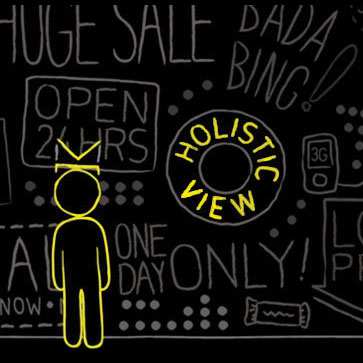Tips to Improve PPC Campaigns and Reduce Cost Per Click

Pay per click advertising can be an effective method of driving traffic instantly to your website or blog. In case you are new to PPC advertising, it is a method in which you create ads, select keywords, and pay each time someone clicks your ad and visits your website. You can gain a better understanding of the basics and even advanced tactics by participating in the Google Certification Program. As for those of you who are already somewhat familiar with PPC advertising, here are fifteen ways you can improve your campaign and lower your cost per click.
1. Define Clear Goals for Your Campaign
This seems obvious, but I have run across numerous business owners who advertise without any clear goals. Just as your business needs a solid plan, you PPC campaign does too.
2. Structure Your Campaigns Properly
For some reason many people want to make as many ads and add as many keywords as possible to a single campaign. Stop it! The PPC platforms offer you a great way to manage and monitor your ads, take advantage of it. I like to limit each campaign to about five keywords and some variations of those terms. This will allow you to better target your ads and landing page thereby increasing your ad quality score and decreasing your cost per click.
3. Long Tail Keywords
This is a gold mine right in front of you. Long tail keywords generally have a lower cost per click and a higher conversion rate. Unless your goal is only traffic, stick to long tail keywords that are commercial in nature. Here is an example: "buy widgets online". An educational keyword on the other hand could be "what are widgets"? In addition to long tail keywords, you should also use negative keywords to improve your results. If you sell widgets, use negative keywords to prevent ads from showing to people looking for "free widgets".
4. Using Competitor Names
This trick has been working for quite some time now but is still underutilized. In order to use this properly, you will need to find competitors offering the exact same products or services as you that have a decent search volume for their brand name. You will then need to craft ads the really get people's attention. Let's say we were using "Franks widget shop" as our keyword. Our ad may say "Franks Widget Shop? Forget about Franks, come save big and give us thanks". This sends a clear message that you are just like Franks, but cheaper. It also uses "rhyme as reason bias" which was made famous in the OJ Simpson trial.
5. Proper Ad Development
You could have the very best landing page possible and a great list of keywords but your ad has to get clicks. Your ad should include the target keyword, a clear message of what you are offering and an incentive. Remember, the client wants to know how you can help them specifically, so tell them in the headline.
6. Creating Dedicated Landing Pages
Your Ad quality score in Google Adwords Is determined by your click through rate, bounce rate, and relevancy of the landing page. If you are sending visitors to a generic page such as your homepage, you are missing out on possible conversions. Creating a custom page with a clear call-to-action will lower your cost per click and increase conversion. Do not overlook this step.
7. Track ALL Data Carefully
This is another seemingly simple step but it is also overlooked the most. Sure, most of you check to see how many clicks you have gotten and maybe your click through rate; but what about all the other valuable data? Having set up your clear goals earlier in the process, you will be able to identify the data that you need to track.
8. Used Advanced Ad Scheduling
Advanced ad scheduling can allow you to reach customers at a peak time. Do you have a breakfast shop? Why not only advertise when you are open for business? This is especially important when it comes to advertising on mobile networks.
9. Incorporate Ad Extensions
Local search is quickly moving toward the leading form of all search conducted. Statistically speaking, most people will visit a place they have conducted a local search for within 24 hours. In order to make the process as easy as possible you should include your phone number, hours and any other pertinent data users may be looking for. If they find your number and not your competitors; who do you think they are going to call?
10. A/B/C Split Testing
While I love PPC and have worked a lot in the field, SEO is my true passion and working in the field has taught me to obsessively split test every variable. Split testing is a critical component of all marketing strategies and PPC is no exception. I suggest that you set up different versions of your ads and landing pages. Try the various combinations and keep the best performing. Then reverse engineer the top ads and see why they succeeded. Use that information for future ads.
11. Cost Per Click Vs. Cost Per Action Vs. Cost Per Impression
While many of you think about cost per click as the primary pricing module, you can also opt for pay per action or impression. If your goal is brand awareness, then perhaps a pay per impression model may work better for you. If your PPC campaign is on Facebook and you want more like, cost per action makes the most sense.
12. Monitor/Improve Your Ad Score
As you know, your ad score directly affects your average cost per click and ad position as well. Improving your ad score is crucial and using the tips above, you are well on your way to getting a great score. I like to isolate and test variables such as keyword density and positioning on the landing page to identify score improvements. If you monitor your score properly you too can find ways to improve it. I have found that including the keyword from your ad at a density of 2 percent with placement in the title and one subheading can improve your score significantly. You should also include the keyword in your image file names and alt text.
13. Get Creative with Niche Sites
Some of the very best PPC advertising opportunities exist on niche sites. Sites such as LinkedIn offer PPC advertising and offer you unique targeting options. Less-known sites such as niche specific forums also commonly offer advertising options and can be significantly cheaper than Adwords. Reach out to the top sites in your niche and ask if the offer banner ads or pay per impression options. You will be amazed at the amount of cheap and targeted traffic you can find.
14. Refresh Regularly
As humans we are all creatures of habit. If you set up a campaign and see even decent results, you may be tempted to "set and forget" it. By regularly reviewing your keywords, ads, and overall campaign goals you can stay ahead of new trends and capitalize on cheaper traffic. Google Trends is a great way to find newly popular terms of trending topics to capitalize on.
15. Brainstorming
This is where you guys come in. What is your favorite way to improve your PPC marketing campaigns?
Share your tips below.








